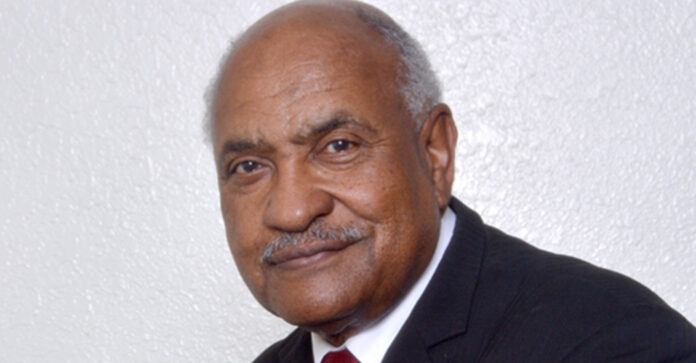
By Dr. John E. Warren, Publisher, The San Diego Voice & Viewpoint
As we begin to celebrate Black History Month, a barrage of attacks appears to continue, from police officers beating and killing a Black man in Memphis to two police murders of two Black men in separate incidents in Los Angeles. We have the war on Critical Race Theories, which most White people in opposition neither understand nor can explain. At the same time, efforts are underway to remove from school libraries books on slavery, race, and the attacks on Black lives and communities.
While we must acknowledge these attacks and their efforts to remove our gains in equality and Civil Rights, let us not get preoccupied with these issues even as we fight
against them.
We must regroup, rethink and shore up our weaknesses in this ongoing battle for what is now a battle for human rights, fairness, and equality as citizens of this nation; entitled to every right of every other citizen and immigrant.
First, let us revisit and remember who Dr. Carter G. Woodson was and what he did. He was born to former slaves. He started High School at age 20. He was the second African American to earn a doctorate from Harvard University. He wrote more than 12 books about the Negro. Some of his better-known works are: The Mis-Education of the Negro (1933), The History of the Negro Church (1921), A Century of Negro Migration (1918), Negro Orators and Their Orations (1925), and African Heroes and Heroines (1939).
Dr. Woodson also created what was then called “Negro History Week” which has since become Black History Month. He created the Association for the Study of Negro Life and History which continues today as the Association for the Study of African American Life and History (ASALH). He published the first Journal of Negro History in 1916 and in 1921 organized the media company, Associated Publishers, to make books available about the Negro.
The point of all this is that we as a people, because of Dr. Woodson, are more educated in numbers than was ever permitted in his day. We have libraries, Google, the internet, and untold opportunities to learn. We have witnessed the first Black President of these United States, elected twice to that Office; and now have the first Black woman to serve as Vice President of these United States, with African Americans serving in the U.S. Congress and having served more than once in the positions of Secretary of State of the United States. There is no office we can’t aspire to and nothing we can’t build on that people like Carter G. Woodson left for us. What do we do?
We must remember who we are, who died for us to have the quality of life we enjoy, and, most of all, we must remember that we do not need government permission or assistance to teach our history to our own and others, or to teach that the right to vote and the correct use of that right is how we overcome the Conservative Right and not accept their agenda as a weapon of defeat. We must remember that in many instances since the George Floyd murder, there are often more young Whites marching with us than Blacks sometimes.
We must do like the people of the State of Georgia and use education and our votes to overcome the roadblocks. We have our communities, our churches, and an army of educators, some retired; as well as Black elected Officials.
Let’s rally our resources as those before us, like Dr. Carter G. Woodson. Look at what he did. Think about what we can do.
Where will you stand?
_____
READ MORE LIKE THIS:



